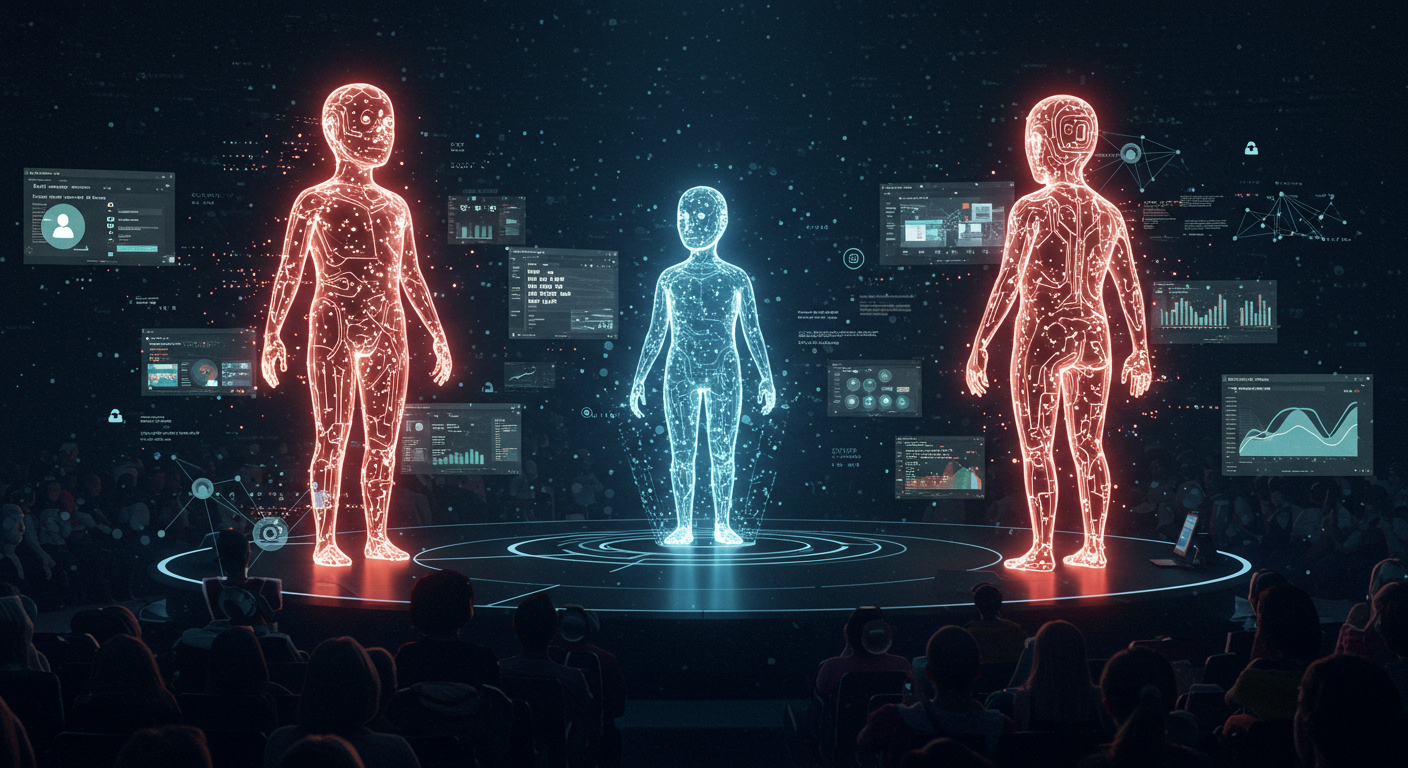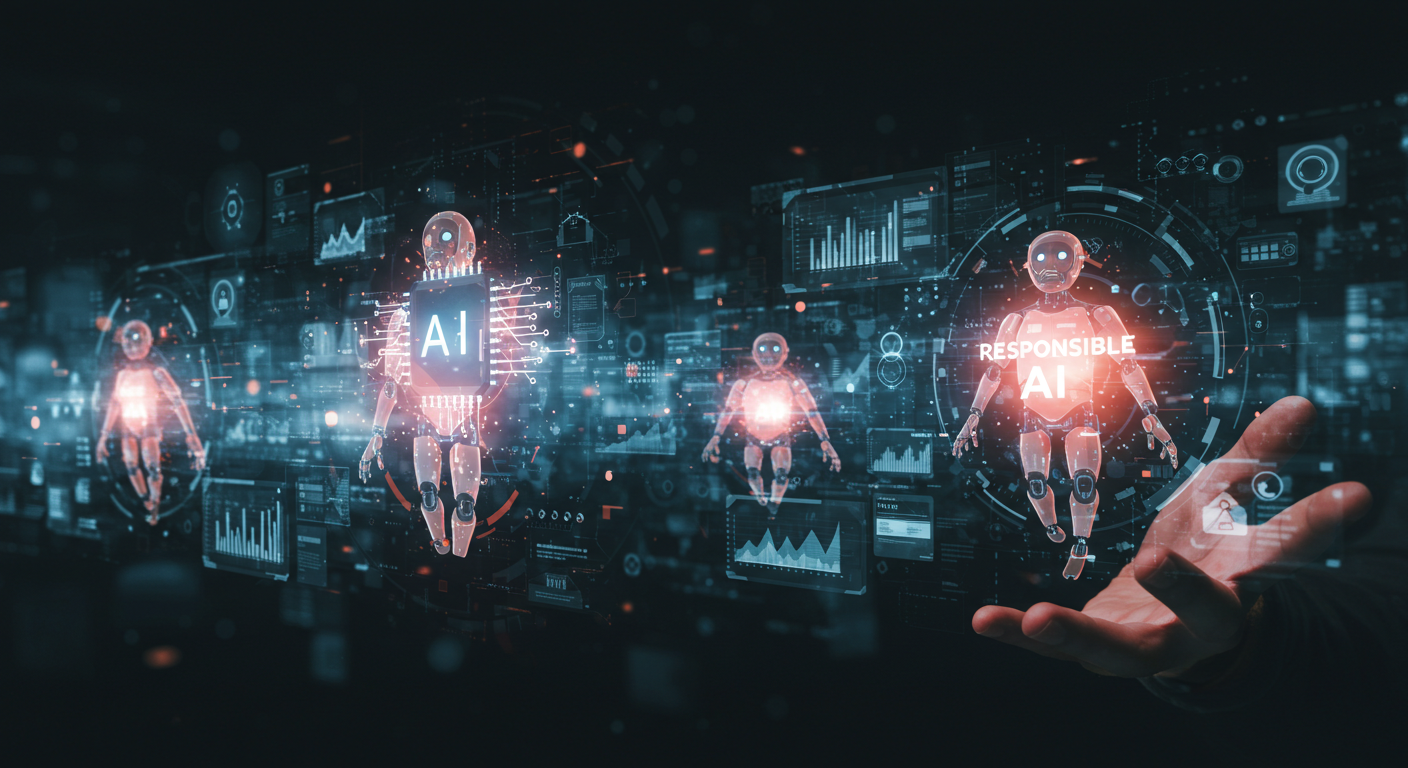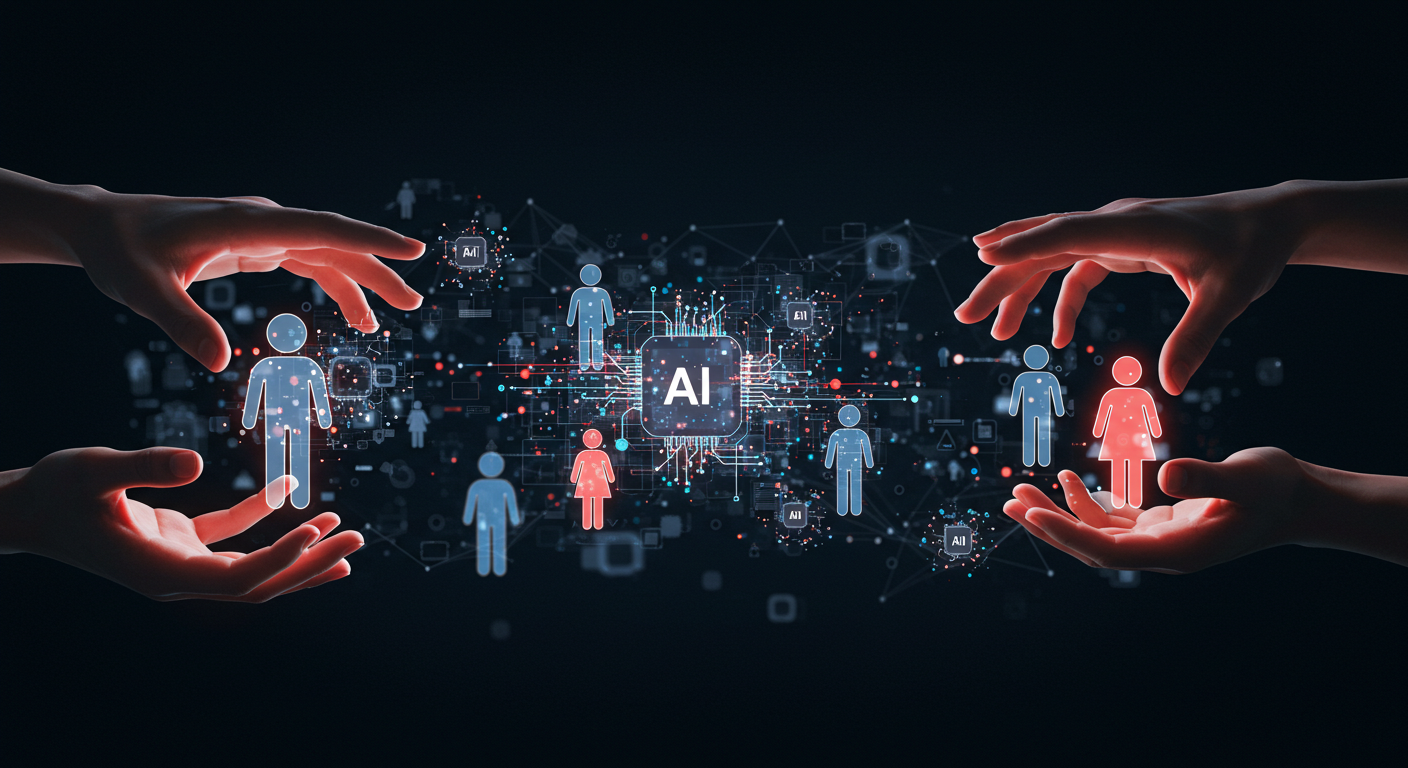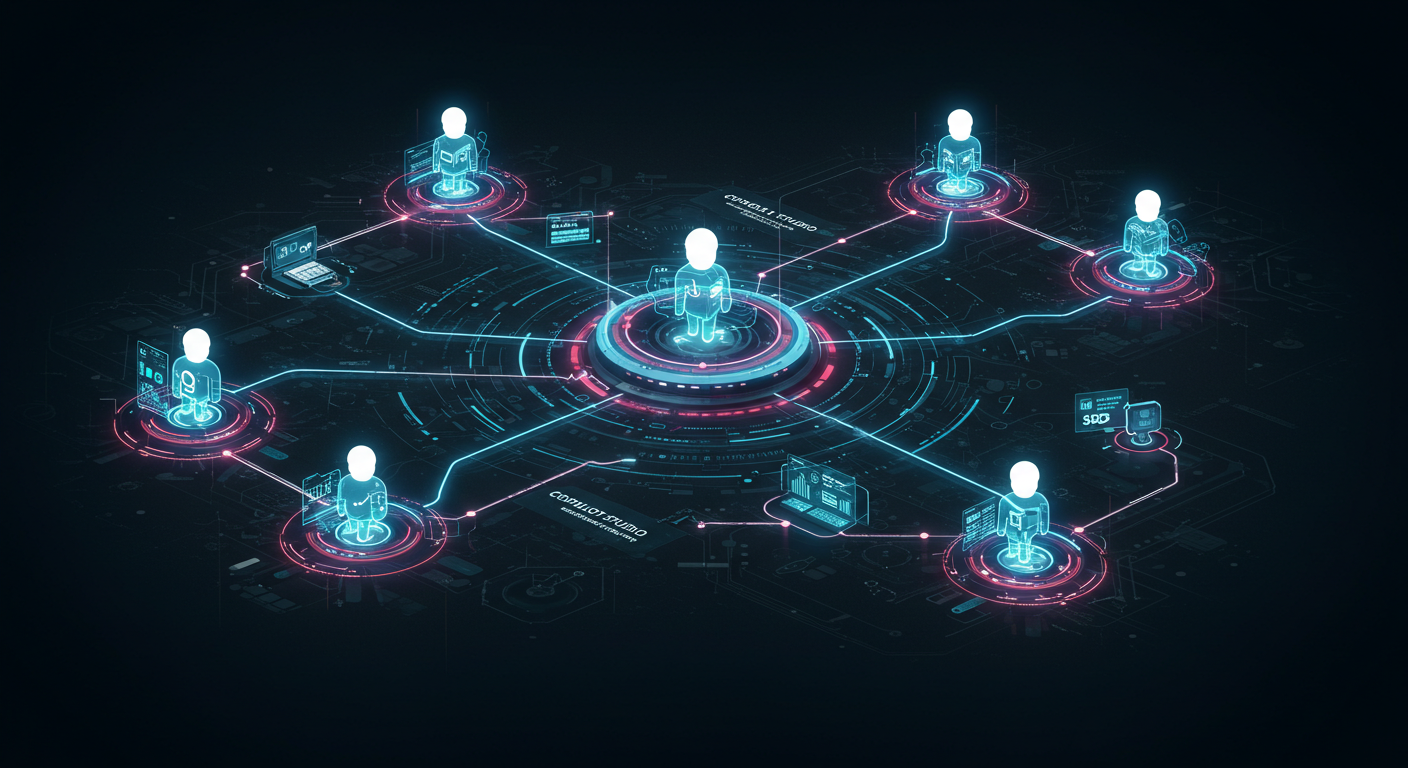
Microsoft Build 2025 Day 1: The Age of AI Agents is Officially Here!
Microsoft Build 2025 Day 1: The Age of AI Agents is Officially Here!
Wow! Just finished soaking in all the Day 1 announcements from Microsoft Build 2025 (May 19th), and if there’s one resounding theme, it’s that the age of AI agents has truly arrived. Microsoft is not just dipping its toes; they’re diving headfirst into building an “open agentic web,” and as an AI enthusiast, I am incredibly excited by the sheer ambition and the powerful tools being handed to developers.
It feels like we’re on the verge of AI transitioning from helpful assistants to proactive, autonomous collaborators. Here are the key announcements and themes from Day 1 that have my mind racing with possibilities:
The Rise of the Agents: Copilot Gets Supercharged
Microsoft is clearly all-in on AI agents – intelligent entities designed to make decisions and perform tasks for us. The star of this show, naturally, is Microsoft Copilot, which is receiving some massive upgrades:
- Autonomous “Agentic” Features: Copilot is evolving! We’re talking about features that allow it to act more independently, leveraging semantic search and integrating with an even wider array of models. This is moving beyond simple Q&A.
- Multi-Agent Orchestration in Copilot Studio: This is HUGE. Imagine multiple AI agents seamlessly collaborating on complex tasks across Microsoft 365 apps like Word, Excel, Outlook, and Teams. Copilot Studio will now allow for this kind of sophisticated teamwork, smoothing out workflows and automating much more complex processes. I can already envision this streamlining so many of my own project management tasks!
- Developer Power-Ups: Microsoft is empowering developers to build these agents with new pre-built agents, custom agent building blocks, and enhanced multi-agent capabilities. Security and productivity are key focuses here.
- Microsoft 365 Agents SDK (Generally Available!): For those looking to build enterprise-grade, scalable, and multichannel agents, the M365 Agents SDK is now generally available. The flexibility for customization with Azure AI Foundry and easy integration with Copilot Studio and Visual Studio sounds fantastic.
- Microsoft 365 Copilot APIs: Developers will soon be able to build fast, context-aware, and secure generative AI experiences using Microsoft 365 data, with the Retrieval API already in preview. This opens up so many avenues for custom solutions that understand user context deeply.
Tools for Building Our Agentic Future
It’s not just about the agents themselves, but also the platforms and tools to create them:
- GitHub’s AI Coding Agent: This one genuinely made my jaw drop. GitHub has launched an AI coding agent embedded directly in Copilot. Think of it as an autonomous peer programmer! It can analyze codebases to autonomously fix bugs, add features, and even improve documentation. This is available now, and I can’t wait to see how it changes the development landscape.
- Teams Gets Smarter Agents: Advanced development tools for Microsoft Teams will support the new Agent2Agent (A2A) protocol (in preview), an updated Teams AI library, and agentic memory. This means we can build even smarter and more collaborative agents directly within Teams.
- M365 Agent Toolkit: An extension for Visual Studio and GitHub designed to simplify building, debugging, and deploying custom engines and declarative agents for Microsoft 365. Anything that simplifies the dev loop is a win in my book.
- SQL Server 2025 (Public Preview): It’s becoming AI-ready, with deep integration with Azure and Microsoft Fabric. Plus, Copilot is being integrated into SQL Server Management Studio 21 to streamline SQL development – another productivity booster.
- Microsoft Fabric: Developers will be able to build modern AI applications grounded on both operational and analytical data, supporting both SQL and NoSQL models. This flexibility is key for diverse AI applications.
Azure AI Foundry: The Engine Room Expands
The Azure AI Foundry, Microsoft’s unified platform for designing, customizing, and managing AI apps and agents, is getting even more powerful:
- New Cutting-Edge Models: Get ready for Grok 3 from xAI (available now!), and soon, Flux Pro 1.1 from Black Forest Labs and Sora via Azure OpenAI Service. Access to diverse, powerful models is crucial.
- Open Source Bonanza: Over 10,000 open-source models from Hugging Face are now available in Azure AI Foundry. Choice is good!
- Azure Databricks Integration (Preview): Easily create AI agents in Azure AI Foundry that leverage enterprise data stored in Azure Databricks for real-time processing. This is a big step for data-intensive AI agent applications.
- Model Router (Preview): This is smart! An intelligent system that automatically selects the best AI model for a given prompt. This could save a lot of guesswork and optimize performance/cost.
Windows: AI Gets Native
Windows itself is becoming a first-class citizen in the AI agent ecosystem:
- Windows AI Foundry: A unified AI platform for Windows, covering the full AI development lifecycle. It offers ready-to-use AI APIs powered by Windows inbox models for tasks like text intelligence and image processing.
- LoRA for Phi Silica: The ability to fine-tune the Phi Silica Small Language Model (SLM) with custom data using LoRA directly within Windows AI Foundry is very exciting for on-device personalization.
- Model Context Protocol (MCP) on Windows 11: Native support for MCP will allow AI agents to connect with native Windows apps, truly integrating AI into the desktop experience.
Other Notable Innovations
A couple of other announcements also stood out:
- NLWeb: A new open standard to enable on-device AI integration in Microsoft Edge. Websites will be able to communicate with AI in natural language, supporting the Model Context Protocol (MCP). This could revolutionize how we interact with the web.
- Microsoft Discovery: A new extensible platform built to empower researchers to transform the entire discovery process with agentic AI. Accelerating R&D with AI agents is a powerful vision.
My Takeaway: An Agentic Tsunami is Coming!
Day 1 of Build 2025 has painted a clear picture: Microsoft is deeply committed to an “agentic” future. The focus is on empowering developers with the tools, platforms, and models to build intelligent agents that can collaborate, automate, and enhance productivity across the board.
As someone exploring AI tools, coding with AI, and automating tasks, these announcements are incredibly energizing. The potential for building more sophisticated, context-aware, and autonomous AI solutions feels closer than ever. I’m particularly excited to see the GitHub AI coding agent in action and to experiment with the multi-agent orchestration in Copilot Studio.
The “open agentic web” is a bold vision, and Microsoft is certainly laying down some serious infrastructure to make it a reality. I can’t wait to see what Day 2 brings!
What announcements from Day 1 of Microsoft Build 2025 are you most excited about? Let me know in the comments below!


